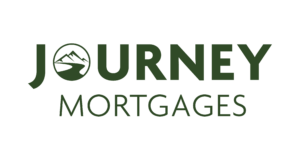First home buyers guide
Whether you have thought about getting prepared to purchase your first home or you have not even begun to get started, buying a home is a major life decision and most likely one of the bigger investments you will ever make.
With constantly changing bank policy and thousands of property listings to navigate, buying a home may seem daunting. That is why more and more buyers are choosing to use a Mortgage Adviser to guide them through the process of purchasing their first home.
We work with potential buyers to streamline the home buying process and negotiate to get you the best finance deal so that you can focus on the house that you would like to buy. We understand that every person has a unique financial situation as well as financial goals, and utilise our full resources to put buyers in a comfortable position to buy their first home with unbiased advice.
Five ways we can help you
- Maximise your borrowing so that you are aware on what you can afford to buy.
- Navigate credit policy across all lenders to find the right bank for you.
- Prepare and present your application in the right light to the bank to give it the best chance of an approval.
- Negotiate with the banks to get you the best deal.
- Support you post settlement with ongoing reviews and advice.
Home loan timeline
- Meeting your adviser
- Application
- Conditional approval
- Unconditional approval
- Settlement
- Ongoing support
Step one: Meeting your adviser
Book in an appointment and discuss your requirements with one of our Mortgage Advisers. Your Adviser will determine your needs and what documents are required to put forward an application. Common documents are; Identification
- Evidence of income(s)
- Bank statements
- Evidence of deposit
- Gift certificate
Your deposit can be made up from numerous sources such as savings, KiwiSaver, and gifts from family/friends. If you are not ready to apply for finance due to a number of reasons, then your Adviser will develop a game plan to help prepare you.
Step two: Application
After you have provided your Adviser with the required documents, they will be able to determine your ability to borrow and if you meet the banks criteria for a home loan. An application will be prepared and submitted along with recommendations on the lender, term, and structure.
Step three: Conditional approval
You will receive a conditional approval (pre-approval). This will outline any outstanding requirements the bank will require and the amount of lending you are qualified to borrow. Common outstanding conditions include;
- Property purchase (Sale and Purchase Agreement)
- Registered valuation
- Insurance
- Building report
Step four: Unconditional approval
Well done! All conditions are satisfied, and you are ready to settle. Your loan has now moved from a conditional state to an unconditional state. This results in the lending being completely confirmed and the bank will be preparing to settle.
Your adviser will consult on cash contribution, interest rate pricing, and your preferred structure. Typical cash contributions from the bank are around $900 per $100,000 of lending. Interest rate pricing will vary depending on the market.
Your preferred structure will vary depending on your needs. For example, you may like to fix half of your loan for 1 year and fix the other half for 3 years, this gives you short and long term security if interest rates were to change.
Loan documents will then be sent to your solicitor to verify the terms and structure.
Step five: Settlement
Congratulations! Time to celebrate. On settlement day your Adviser will be in touch to ensure the process runs smoothly.
Your solicitor will have run you through the loan documents and sent them back to the bank. The bank will advance your mortgage to your solicitor’s trust account, and you will also send your deposit to your solicitor.
Once the transfer is complete the keys will be handed to you.
Step six: Ongoing support
We provides ongoing support and is here to answer your questions, re-fix, negotiate and structure your loan. Should you have any queries about your lending or the market in general your adviser will there to help.
If you would like to think about purchasing an investment property in the future then your adviser will be your best place to start.
FAQ’s
Why use a Mortgage Adviser?
Mortgage Advisers are qualified to give advice that banks simply can not give. Your broker is your personal adviser who works for you and does not work for the bank. They will be able to guide you through the entire process from start to finish and offer unbiased advice.
As Mortgage Advisers we have access to many lenders who can offer a variety of different mortgage solutions. Lenders have different credit policies and by only talking to one lender you may not get the best outcome. There is no need to take the risk when our services are free.
Being available is a key reason why you should utilise a Mortgage Adviser. Unlike, the banks you will be able to contact your Adviser directly and discuss anything regarding your purchase, finance, or your current situation.
How much deposit do you need?
Can I borrow 100%? – unfortunately not, in the current market you will require a 20% deposit. There are a few exceptions to this rule. These are if you are building a home, purchase a home that was built within the last 6 months, or you are getting a first home loan. In these exempt scenarios you may only require a 5% deposit.
A ‘First Home Loan’ is offered by only a few lenders and is underwritten by Kainga Ora (Housing NZ). To meet the criteria for the loan your income will have to be below a certain level.
How much can I borrow?
You will have an initial meeting with your mortgage adviser and from there they will go away and do some calculations that will determine the approximate amount you will be able to borrow.
A good rule of thumb to find your maximum lending is calculating 6x your income, if you want a quick estimate.
Mistakes to avoid
Searching for a house prior to speaking to a Mortgage Adviser
There is nothing wrong with window shopping for properties that catch your eye. However, it is always necessary to speak to your Mortgage Adviser first so that they can assess your capacity to borrow and inform you what value of home you can afford to buy. Doing this will help you find a home in your budget more quickly.
Poor account conduct
This is when prior decisions can come back to haunt you. The lender will look at your bank statements and credit check to ensure that you have a high-quality level of account conduct. If you have gone into an unarranged overdraft, have missed loan repayments or have any unpaid bills they will be found out. It is always wise to front foot any adverse credit.
Houses built between 1985-2003
This is the period of dodgy building practices and the “leaky building” disasters. You can avoid purchasing a leaky home by staying away from, monolithic cladding systems/plaster houses/direct fix houses.
Unrepaired earthquake damaged homes
Homes that have not had full repairs done on them are deemed “As Is, Where Is”. These have generally suffered major damage through natural disasters and are generally not fully insurable or accepted by the banks.
Using buy now pay later schemes
Buy Now Pay Later (BNPL) schemes seem like a good idea because you can delay payment at no extra cost, but the banks see this as a regular ongoing expense and take these into account when seeing if you can service a loan. This may mean the difference between a pass and a fail on your application.
Having high personal loans/vehicle loans/credit cards
Personal and vehicle loans reduce your capacity to borrow a larger mortgage because loans before applying for your mortgage.
Banks assess credit cards based on the limit, not on the balance of the card. This means that even if your balance is zero, if you have a $10k limit they will assess it at this repayment level and this will result in reduced servicing ability.
Secret sauce
Getting mortgage free quickly is a dream for many Kiwi’s. Here are some tips to consider if you would like to reduce the time spend paying your mortgage.
- Plain and simple, increase your repayments. Try and avoid paying the minimum required. For example; say you purchased a home for $700,000 with a deposit of $140,000, this would result in a mortgage of $560,000. Over a 30 year term with a 4% interest rate your minimum monthly repayments would be $2,674. If you increased your repayments to $3,000 a month then you will pay your mortgage off 5 years earlier.
- If you are good at budgeting then a revolving credit home loan may suit you. A revolving credit facility is basically a big overdraft facility where all your income and expenses are placed. In these scenarios you are able to make lump sum repayments without penalty and it may suit people who are good at budgeting and will reduce the limit of the “overdraft” over time.
- If you have any consumer debt such as credit card, vehicle or personal then prioritise on paying down this debt before your mortgage as it will have a higher interest rate. Once these are paid down, use the funds once used for repayments to put toward your mortgage instead.
- Getting a boarder or a flatmate can greatly reduce the burden of mortgage repayments and will help you pay off your mortgage faster. In the majority of instances income from a boarder is tax free and can go straight towards bills and mortgage repayments.
Checklist
You’re looking at purchasing a home soon and want to make sure the process is as seamless as possible. Work through the checklist below:
Clean account conduct.
- Do a credit check on Centrix
- No missed payments or overdrawn accounts
Reduce debt and unnecessary expenditure
- Cancel memberships/direct debits that you no longer use
- Pay down consumer debt such as personal loans
Deposit
- Calculate your total deposit through savings, cash, KiwiSaver, and gifts
Servicing
- You will likely be able to borrow a max of 6x your income
Pre-approval
- Apply and get pre-approved so you are aware of your budget
Acceptable security
- Less than 20% deposit? the bank will require a registered valuation; your adviser can order this for you
- Order a building report
- Arrange a solicitor/conveyancer to review the contract
Journey Mortgages are Mortgage Advisers, located in Christchurch, available for all your home loan needs
Get in touch with us by either completing our contact form or giving our team a call on
Alex 022 132 0373
email alex@

Our featured customer reviews
At Journey Mortgages in Christchurch, we offer a distinctive experience that truly stands out by blending top-notch services with exceptional customer support. Listen to what our clients have to say about their experiences with us.
